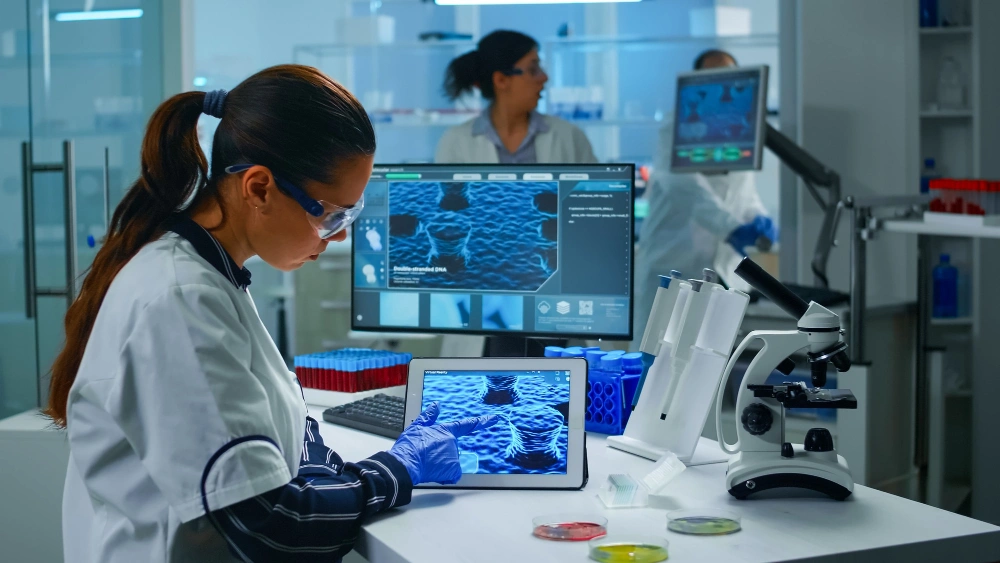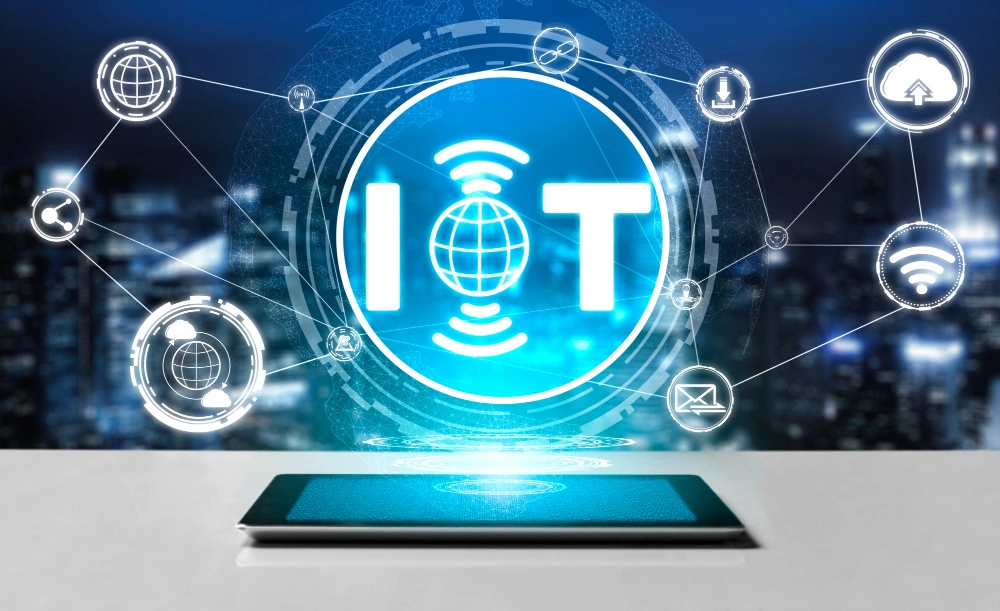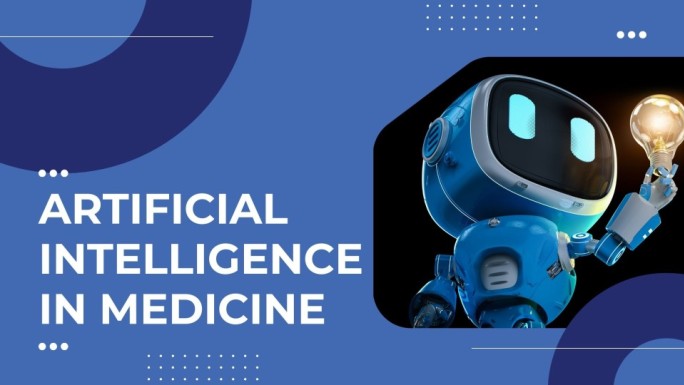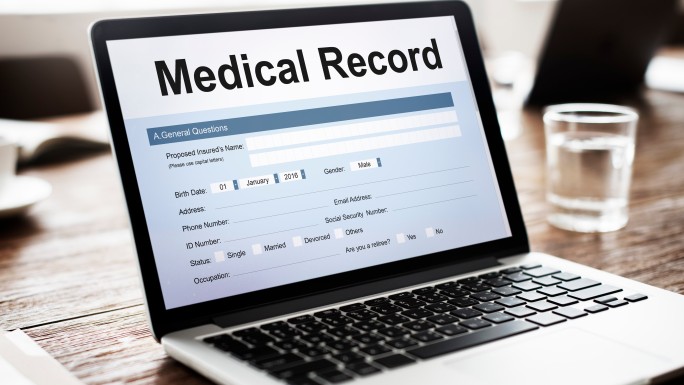Best Software Development Languages for the Healthcare Sector
Technology plays a critical role in improving patient outcomes, streamlining hospital operations, and advancing medical research. Software development, in particular, is a driving force behind innovative healthcare solutions, from telemedicine platforms to electronic health record (EHR) systems and AI-powered diagnostics. However, building these complex and often life-critical applications requires choosing the right programming language, which can impact the final product's security, scalability, and efficiency.
In this blog, we’ll explore some of the best programming languages for healthcare software development, each with its own strengths tailored to the unique needs of the healthcare sector.
Top Programming Languages for Healthcare Software Development
Python
When it comes to healthcare software development, Python is always one of the most used programming language thanks to its readability and ease of use. Besides, versatility allows it to be used for various tasks, from data analysis and machine learning to web development and automation.
Moreover, Python has a rich ecosystem of libraries that are particularly valuable for healthcare applications. Libraries like NumPy, Pandas, Scikit-learn, and TensorFlow provide powerful tools for data analysis, machine learning, and scientific computing.
Some examples of Python-based healthcare applications include:
- Electronic health records (EHRs): Python can be used to develop and manage EHR systems, improving patient care and data management.
- Medical image analysis: Python's libraries can be used for tasks like image segmentation, classification, and object detection in medical images.
- Drug discovery: Python can be used to analyze biological data, identify potential drug targets, and simulate molecular interactions.
Java
Java's robust, platform-independent nature and extensive ecosystem make it a premier choice for healthcare software development. Its platform independence ensures that applications can run on various operating systems. Thus, it’s suitable for diverse healthcare environments. In fact, Java is currently a popular choice for developing large-scale healthcare systems, such as hospital information systems (HIS) and practice management software.

Belows are examples of Java-based healthcare applications:
- Hospital information systems (HIS): Java can be used to develop comprehensive HIS solutions that manage patient records, appointments, billing, and other administrative tasks.
- Medical imaging systems: Java can be used to develop software for medical imaging devices like X-ray machines, MRI scanners, and CT scanners.
- Health insurance claims processing: Java can be used to develop systems for processing health insurance claims, ensuring accurate and timely payments.
C#
C#, with its modern syntax, object-oriented features, and strong type system, has emerged as a powerful language for healthcare software development. Its integration with the .NET framework provides developers with a rich set of tools and libraries for building scalable and efficient applications. Moreover, C#'s ability to seamlessly interact with other technologies, such as SQL databases and web services, makes it well-suited for developing complex healthcare systems that require interoperability and data integration.
C# is used for healthcare applications such as:
- Clinical decision support systems (CDSS): C# can be used to develop CDSS that provide healthcare professionals with evidence-based recommendations.
- Medical device software: C# can be used to develop software for medical devices, such as pacemakers and glucose monitors.
- Telehealth applications: C# can be used to develop telehealth platforms for remote patient monitoring and virtual consultations.
JavaScript
JavaScript, while primarily known for its role in web development, has also found a significant place in healthcare software development. Its versatility and ubiquity make it an essential tool for creating interactive user interfaces, integrating with backend systems, and developing web-based healthcare applications.
JavaScript frameworks like React and Angular provide powerful tools for building complex healthcare software, enabling developers to create efficient and user-friendly solutions
Outstanding examples of JavaScript-based healthcare applications:
- Patient portals: JavaScript can be used to develop patient portals that allow patients to access their medical records, schedule appointments, and communicate with healthcare providers.
- Mobile health (mHealth) apps: JavaScript can be used to develop mobile apps for health monitoring, medication management, and other healthcare tasks.
- Health data visualization: JavaScript can be used to create interactive visualizations of health data, helping healthcare professionals understand trends and identify patterns.
R
R, a statistical computing language, has gained significant traction in healthcare software development due to its powerful data analysis capabilities. Its extensive ecosystem of packages, such as ggplot2 for data visualization and dplyr for data manipulation, makes it an invaluable tool for researchers and data scientists working on healthcare-related projects.
Additionally, R's flexibility and open-source nature allow for customization and integration with other tools,thus it is a versatile choice for a wide range of healthcare applications.

Examples of R-based healthcare applications:
- Bioinformatics analysis: R can be used to analyze genomic data, identify genetic markers, and study the molecular basis of disease.
- Clinical trial analysis: R can be used to analyze data from clinical trials, evaluate the efficacy of new treatments, and assess safety profiles.
- Epidemiological studies: R can be used to conduct epidemiological studies to investigate the distribution and determinants of health-related states or events in a population.
Factors to Consider When Selecting a Language
Selecting a programming language for healthcare software development depends on 5 main factors: scalability, security, interoperalbility, community and support and its performance.
Scalability
First of all, the chosen language must be able to handle increasing workloads and data volumes as healthcare organizations grow and the volume of data increases
This means it should be able to handle larger datasets, higher traffic, and more complex computations without significant performance degradation.
Security
Secondly, the chose language must ensure patient data privacy and confidentiality. Healthcare data is highly sensitive and requires strict security measures. Thus, the programming language should provide robust security features to protect against unauthorized access, data breaches, and other security threats.
Interoperability
Interporability is also the essential factor. Healthcare organizations often have a mix of legacy systems and modern technologies. The programming language should be able to integrate seamlessly with these systems and devices, ensuring data exchange and interoperability.
Community and Support
Moreover, we should also consider the community and support of the programming language. A large and active community can provide valuable resources, libraries, and support for developers working with the language. This can help accelerate development, troubleshoot issues, and stay up-to-date with the latest trends.
Performance
Last but not least, Efficiency and speed of execution is of importance in healthcare applications, especially for time-sensitive tasks like real-time monitoring or medical image processing. The chosen programming language should be efficient and provide good performance characteristics.
The table belows show the performance of 5 mentioned programming languages according to the factors. Let's take a look
|
Factor |
Python |
Java |
JavaScript |
C# |
R |
|
Scalability |
Excellent |
Excellent |
Good |
Excellent |
Good |
|
Security |
Good |
Good |
Good |
Good |
Good |
|
Interoperability |
Excellent |
Excellent |
Excellent |
Excellent |
Good |
|
Community and support |
Excellent |
Excellent |
Excellent |
Excellent |
Good |
|
Performance |
Good |
Good |
Good |
Excellent |
Good |
Obviously, Python, Java, JavaScript, C#, and R all perform well, that's reason why they are on top 5 chosen languages for healthcare software development. Each offers unique advantages, catering to different project requirements and developer preferences.
However, the best programming language for a healthcare software development project depends on factors such as the project's specific needs, the developers' expertise, and the existing infrastructure. By carefully considering these factors, developers can select the most appropriate language to create innovative and effective healthcare solutions.
Emerging Trends and Future Directions
1. Artificial Intelligence (AI) and Machine Learning (ML)
Artificial Intelligence (AI) and Machine Learning (ML) are rapidly transforming the healthcare landscape. In particular, their applications in medical image analysis, drug discovery, and personalized medicine are poised to revolutionize patient care.
Read more: A comprehensive look at AI
AI algorithms can analyze medical images with unprecedented accuracy, detecting abnormalities that may be missed by human experts. ML techniques can accelerate drug discovery by identifying potential drug targets and optimizing drug design.Additionally, AI-powered personalized medicine can tailor treatments to individual patients based on their unique genetic makeup and medical history.
Programming languages like Python and R, equipped with libraries like TensorFlow, Keras, and PyTorch, are essential tools for developing and deploying AI and ML solutions in healthcare. As these technologies continue to advance, we can expect to see even more groundbreaking innovations in the field of healthcare.
2. Internet of Things (IoT)
The Internet of Things (IoT) is revolutionizing healthcare by connecting medical devices and enabling remote patient monitoring. Wearable health trackers, smart medical equipment, and other IoT devices allow for continuous monitoring of patients' vital signs, early detection of health issues, and improved care management. This technology is particularly valuable for chronic disease management and remote care, enabling patients to receive timely interventions and reduce the need for hospital visits.

Programming languages like C and C++ are commonly used for developing embedded systems and IoT devices due to their efficiency and performance. These languages are well-suited for resource-constrained environments and can be used to create low-level device drivers and communication protocols.
3. Blockchain
Blockchain technology offers a decentralized and secure solution for storing and sharing healthcare data. Its immutability and transparency can address concerns about data privacy, security, and interoperability. Potential applications include creating immutable records of electronic health records (EHRs), ensuring data integrity and preventing unauthorized access. Blockchain can also be used to track the movement and provenance of medical supplies and pharmaceuticals, improving supply chain transparency and reducing fraud.
Programming languages like Solidity, specifically designed for developing smart contracts on the Ethereum blockchain, are essential tools for creating decentralized applications (dApps) and implementing blockchain-based solutions in healthcare.
Conclusion
In conclusion, the choice of programming language for healthcare software development is crucial in ensuring the success and effectiveness of healthcare applications. By carefully considering factors such as scalability, security, interoperability, community support, and performance, healthcare organizations can select the most suitable language to meet their specific needs. Additionally, exploring emerging technologies like AI, ML, IoT, and blockchain as well as the corresponding programming languages is crucial as healthcare providers can position themselves for a future characterized by personalized medicine, efficient care delivery, and enhanced data security.





